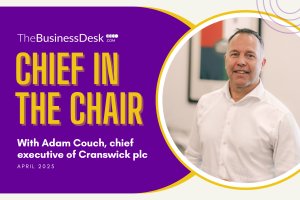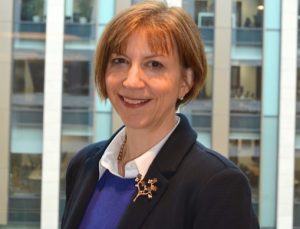MBA Week: Studying for success during the downturn

IN the first of a week-long series of features in association with Leeds Business School, TheBusinessDesk.com asks ‘what is an MBA?’
“AN MBA really is the Gucci mark,” says Nick Beech, programme leader of the Executive MBA at the Faculty of Business and Law at Leeds Metropolitan University.
Studied by executives across the globe, the Master of Business Administration attracts people from a wide range of disciplines and has become a passport to the higher echelons of industry.
The MBA originated in the United States in the late 19th century as industrialisation evolved and businesses took a more scientific approach to management.
It was introduced into Europe in the 1960s with the founding of IESE in Spain.
Run by some of the world’s best known institutions, MBAs are often used as a way of helping executives move ahead within their organisations by helping to train them for high profile management positions.
According to the Association of MBAs, the MBA is the world’s most popular postgraduate degree. Around 90,000 MBAs graduate in the US each year, while more than 10,000 graduate in the UK annually – the highest figure outside America.
There are around 1,500 credible business schools running MBA programme worldwide.
MBA courses set out to equip managers to rise to senior positions in the private and public, non-profit sectors and at SMEs.
Indeed, Mr Beech says in recent times there has been a realisation within the not-for-profit sector that MBAs are an important tool.
However, an MBA isn’t open to everyone. Business and management experience is a pre-requisite before embarking on the course, which can be studied part-time or full-time.
Mr Beech, who said Leeds Business School’s Executive MBA was designed specifically to meet the development needs of managers in the region, says three years’ management experience is often cited as the benchmark for embarking on an MBA.
The core courses in the MBA program are designed to introduce students to various areas of business such as accounting, marketing, human resources and operations management.
Just concentrating on your own area of expertise is not the point of studying for an MBA, says Mr Beech, although students can often select an area of concentration as part of their graduate program and focus specific time on this area.
Full-time courses last from one to two years, and although fees can be high, in many cases employers are prepared to contribute to the cost.
Part-time students often complete the MBA in two years and there are also distance and online courses.
Study of the MBA often combines traditional lectures and seminars with interactive teaching methods, bringing in case studies, group and discussion projects, and role-playing exercises.
A research project and dissertation are also more often than not integral parts of the MBA programme.
Students are expected to be prepared to put in around 20 hours a week in a distance learning course – part-time and full-time courses require even more commitment.
“Having an MBA is like going to a pistol fight with a machine gun,” concludes Mr Beech.
For further information on studying for an MBA or Executive MBA at Leeds Business School, visit http://www.leedsmet.ac.uk/lbs/cde/programmes/index.htm.
Tomorrow: What is the value of an MBA?







